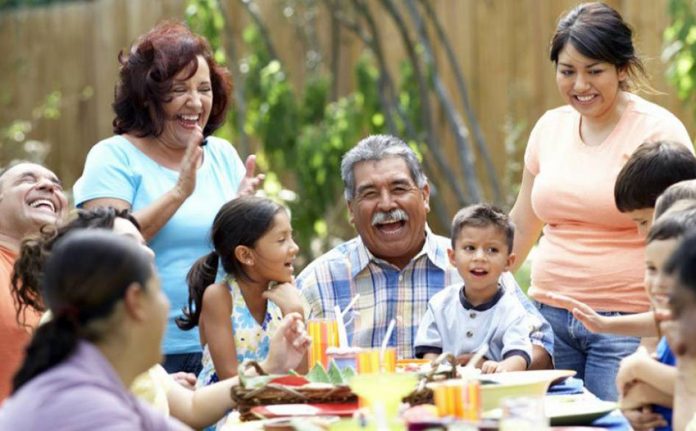I haven’t always liked little kids. In fact, most of my adult life I’ve been one of those people who scowl when they’re being noisy or nosy or running around in public, and as my husband tells me “I don’t see my face” — I think I have a mostly neutral expression with maybe 5% annoyance showing, but the 70% I actually feel is clear.
I was one of those people who stirs that particular mix of anxiousness with indignation in even the most confident parent. Boy, have I ever had to eat my lousy attitude!
My daughter was born in the fall of 2013, and while she had us fooled for the first couple of weeks we soon realized that she was not a chill baby at all.
She’s 5 now and a dream of a child, but I have yet to meet a baby as consistently upset as she was; she cried and screamed at the top of her lungs as if she were being tortured pretty much constantly until well into her second year of life. She hardly slept.
It took us a good three months to really get breastfeeding down. I remember arriving, weepy, at the pediatrician’s office for her four-month appointment saying, “You said she would be so much better by her fourth month! What’s happening?”
“Colic,” he said.
But really, that’s just what we say when seemingly healthy babies cry all the time and we can’t figure out why.
During my pregnancy I’d planned on traveling around with her once she’d reached a couple of months. We’d go to Querétaro for a wedding and to see family and friends, get her United States passport in Mexico City, then home to Texas for her to formally meet her other country.
That is not what happened. She was so upset so much of the time that I just couldn’t, for one, subject an innocent public to her ear-splitting and constant screaming, least of all people confined to a bus for five hours with no way to escape.
I was also, simply put, a mess. In retrospect, I recognize that I suffered from severe postpartum depression that simply went untreated.
I don’t know if it’s simply not a well-known problem here or if fewer women in Mexico suffer from it because of a generally stronger support system for raising babies, but it was so bad at one point that I was petrified to walk out on to the second-floor balcony with her, terrified that in a moment of sudden exhaustion-induced psychosis after hours of her screaming that I’d toss her over.
All of this was with extensive help: from my mother-in-law and sister-in-law, from my husband doing everything he could short of nursing her himself, from the lady that helped us with the housework.
As Mother’s Day approaches (this article will come out a few days after) and Children’s Day festivities end, I’ve been thinking a lot about how we care for our children here, the spaces in general that children are allowed and expected to occupy, and the impossibility of being classified as a “good mother” by everyone you might come across.
After all, if something happens to a child, the question is never “but where was the father?” If a child arrives at school with messy hair or dirty clothes, no one thinks “I can’t believe her dad would send her to school like that.”
That said, there’s a kind of organically emotional and structural support here for mothers and children that our North American compatriots and neighbors don’t get to experience, and people tend to reserve (open) judgement about one’s particular child-rearing methods.
It’s nice and necessary, of course, for parents to have some alone time and solo outings, but the expectation for parties, ceremonies and other events is that the family will arrive as a unit, no matter how small some of the members, and that everyone will keep an eye on the kids together in a way that lets them have a bit of freedom and movement without any parent having to “helicopter” above them 24/7.
There’s value in times and spaces that are only for children, but I love that so few things are considered “off limits” for them here; it integrates them into a real community from early on.
I also appreciate so much all of the “natural” help I receive from friends and family members, often without having asked for it. The proverb, “It takes a village to raise a child” is exactly right, and I’m a firm believer that humans are creatures of community, and that children were never meant to be raised by one or two isolated parents in one isolated, private home.
Mexico has proved that truism to me, and I am grateful every day to be raising my child here.
Five years later, I have the best daughter I could have hoped for. We can travel now, and people at the very least pretend to be charmed by her wherever we go (I, of course, think they really are, but in the end all we know is what we perceive. In either case, I appreciate the show of kindness.)
She’s my little buddy, affectionate and sharp. She is everything I wanted in a child: brave, smart, kind and outgoing in a way that I was always too shy to be but always hoped to achieve.
The childhood I’ve been able to give her in Mexico is not something I’d trade; she is welcome, expected and enjoyed in every space that people occupy, and every day I am proud and grateful to raise her here.
Happy (belated) Mother’s Day.
Sarah DeVries writes from her home in Xalapa, Veracruz.
